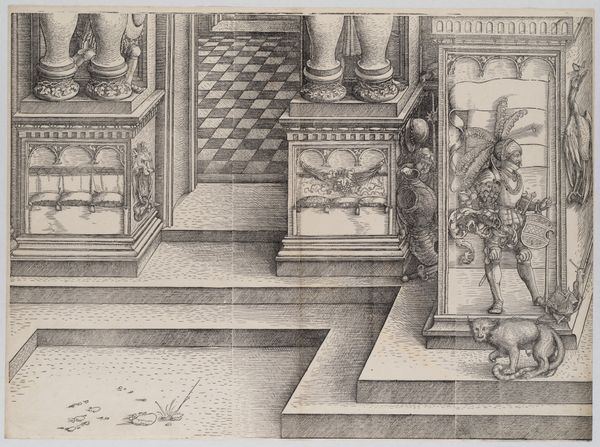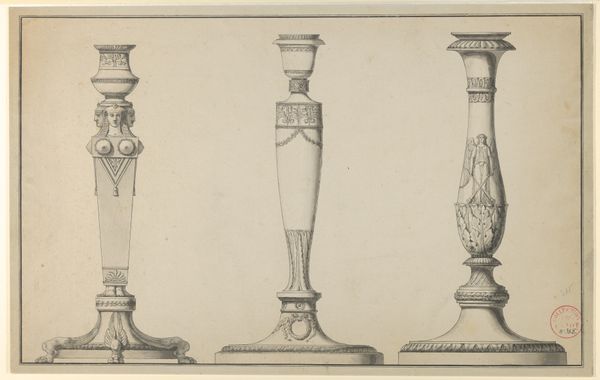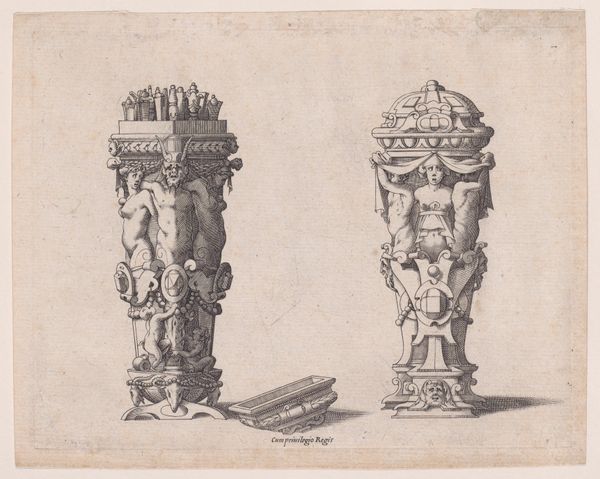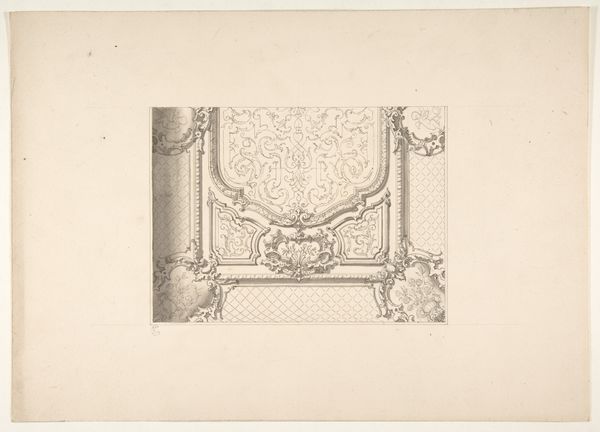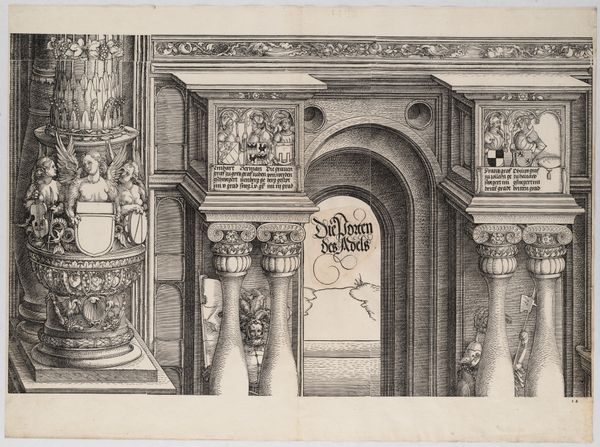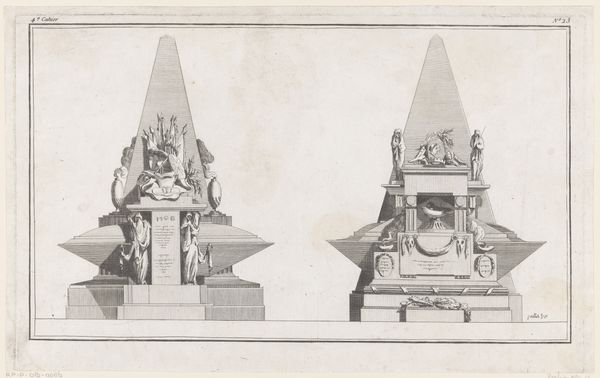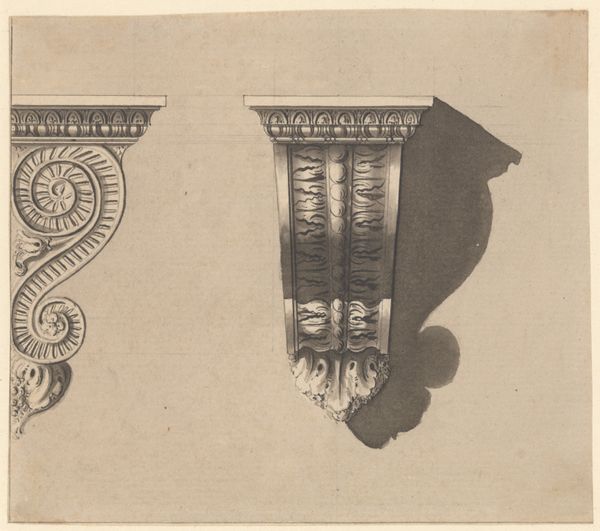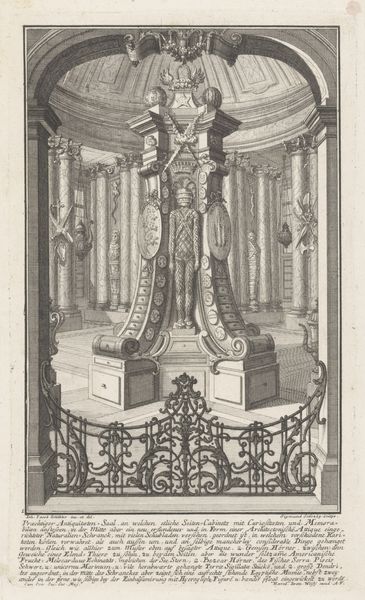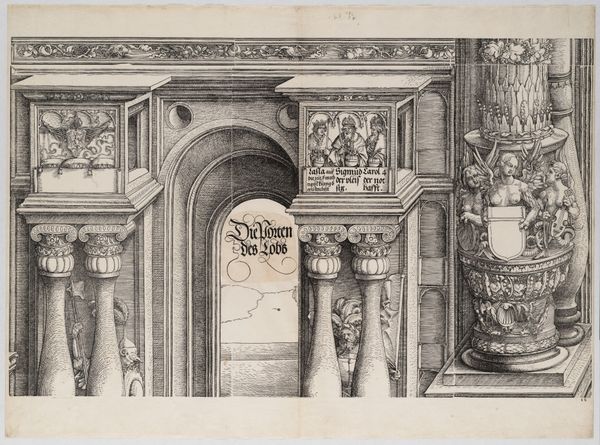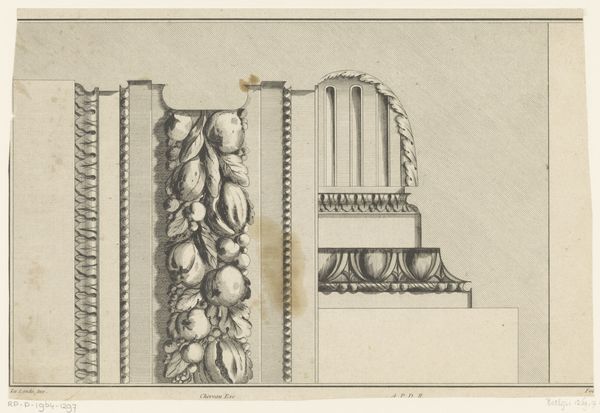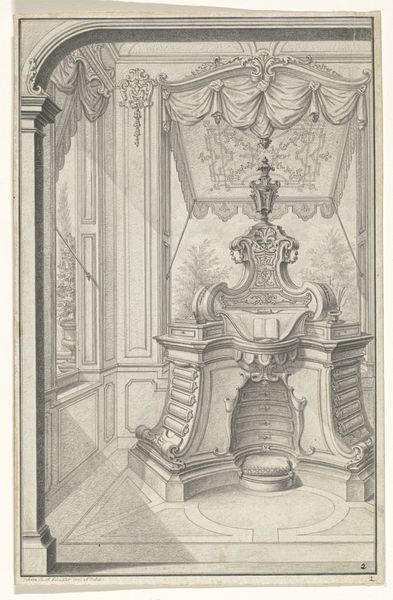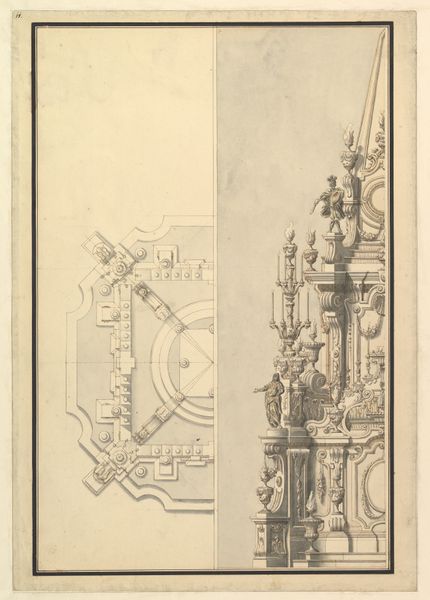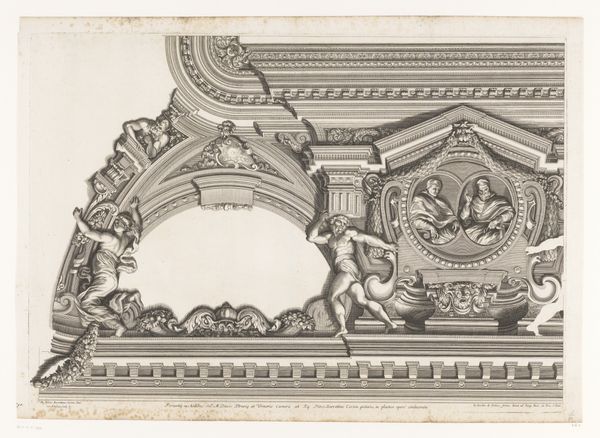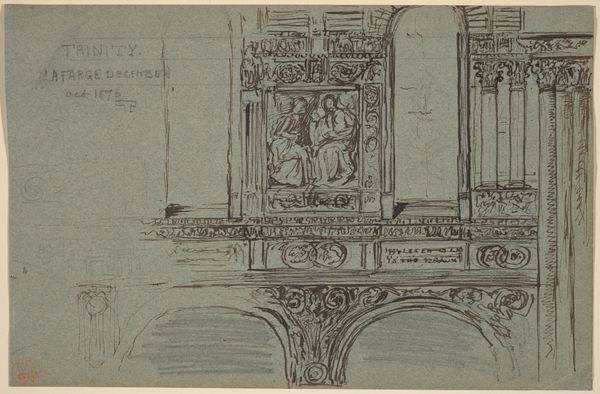
The Middle Section of the Entryway to the Central Portal, the Columns Decorated by Sirens and Sleeping Soldiers Behind, from the Arch of Honor, proof, dated 1515, printed 1517-18 1515
0:00
0:00
drawing, print, engraving
#
portrait
#
drawing
# print
#
form
#
11_renaissance
#
geometric
#
line
#
cityscape
#
history-painting
#
northern-renaissance
#
engraving
Dimensions: Sheet: 18 5/16 × 24 5/16 in. (46.5 × 61.7 cm)
Copyright: Public Domain
Albrecht Durer made this print, the Middle Section of the Entryway to the Central Portal, in Germany around 1515 using woodcut. It’s part of a much larger work commissioned by Emperor Maximilian I, who sought to immortalize his reign through art. Look closely, and you’ll notice the classical motifs: the columns, the sirens, and sleeping soldiers. These are visual cues that would have resonated with the educated elite of Durer’s time, signaling imperial power through the lens of ancient Rome. The print wasn't just a celebration of Maximilian; it was a piece of carefully constructed propaganda designed to shape his legacy. Durer’s technical skill is evident, but it's also important to acknowledge the institutional context. How did patronage shape artistic production? What role did art play in the political theater of the early 16th century? By consulting historical documents we can start to appreciate the complex interplay between art, power, and society.
Comments
No comments
Be the first to comment and join the conversation on the ultimate creative platform.
